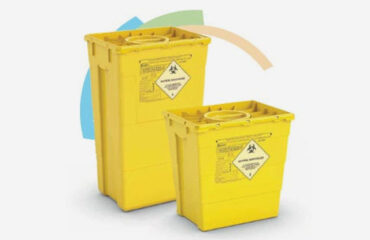What Does Reclaim Waste Do?
What Does Reclaim Waste Do?
Blog Article
The smart Trick of Reclaim Waste That Nobody is Talking About
Table of ContentsReclaim Waste Can Be Fun For AnyoneAn Unbiased View of Reclaim WasteOur Reclaim Waste StatementsThe Reclaim Waste DiariesThe Definitive Guide to Reclaim Waste
Domestic sewage waste refers to the waste and items from a household septic container. The proper administration and disposal of residential sewer waste require liquid waste to be transferred to a sewage treatment plant where the appropriate methods and equipment are applied to cleanse and dispose of waste.
Commercial waste typically consists of potential dangers, such as flammable products or a combination of fluid and solid waste products, and calls for a much more sophisticated and thorough disposal process. The disposal of industrial waste commonly includes the filtering of waste before transport to ensure safe and correct disposal. Industrial waste is created from byproducts and runoff of industrial procedures and production.
This type of waste can not utilize the exact same sewage management transport or procedures as septic or business fluids. The commercial waste management procedure calls for the evaluation and screening of fluid waste before it undertakes the disposal process (liquid waste disposal). Overflow waste is the liquid waste that comes from overflow and excess stormwater in highly populated areas or cities
Overflow waste can create contamination and flooding otherwise dealt with correctly. Find out extra regarding drain cleansing and waste administration. Guaranteeing correct waste management can protect against catastrophes and minimize ecological injury. Both individuals in residential setups and professionals in business or manufacturing sectors can gain from comprehending the procedures and guidelines of fluid waste management.
Some Known Questions About Reclaim Waste.
Contact PROS Solutions today to learn more about our waste monitoring and disposal solutions and the proper ways to care for the fluid waste you create.
(https://www.ted.com/profiles/48198485/about)Do you know what happens to your water when you draw the plug, purge the commode or drain the cleaning maker? No? Well, it deserves understanding. This supposed 'wastewater' is not only an essential resource however, after therapy, will certainly be launched to our land, rivers or the ocean. Made use of water from bathrooms, showers, baths, cooking area sinks, washings and industrial procedures is referred to as wastewater.

water made use of to cool machinery or tidy plant and equipment). Stormwater, a kind of wastewater, is overflow that flows from farming and urban areas such as roof coverings, parks, yards, roadways, courses and rain gutters into stormwater drains pipes, after rain. Stormwater moves unattended directly to regional creeks or rivers, at some point getting to the ocean.
Facts About Reclaim Waste Revealed
In Queensland, a lot of wastewater is dealt with at sewage treatment plants. Wastewater is carried from residential or commercial sites through a system of sewage systems and pump terminals, referred to as sewage reticulation, to a sewage treatment plant. Neighborhood governments moved here develop, preserve and operate most sewage treatment plants. Operators are certified under the Environmental Management Act 1994 to release treated wastewater at an appropriate environmental standard into rivers.
The Department of Natural Resources suggests neighborhood federal governments regarding handling, operating and maintaining sewerage systems and therapy plants. In unsewered areas, city governments may require householders to set up specific or family sewer treatment systems to deal with residential wastewater from bathrooms, kitchen areas, washrooms and laundries. The Division of Natural Resources authorises the usage of home systems when they are shown to be effective.
In some new neighborhoods, therapy of some stormwater to remove clutter, sand and crushed rock has actually started making use of gross contaminant catches. Wastewater therapy occurs in four stages: Gets rid of solid issue.
Wastewater then moves into large storage tanks where solids settle and are gotten rid of as sludge. Grease and residue are skimmed from the surface. Uses small living microorganisms referred to as micro-organisms to damage down and remove remaining dissolved wastes and fine bits. Micro-organisms and wastes are included in the sludge. Removes nitrogen and phosphorus nutrients that could cause algal flowers in our rivers and threaten aquatic life.
The Buzz on Reclaim Waste
Nutrient removal is not offered at all sewer treatment plants because it needs expensive specialised equipment. Clear fluid effluent created after treatment may still include disease-causing micro-organisms - liquid waste disposal.

The majority of wastewater moves right into the sewerage system. Under the Act, local governments provide approvals and permits for ecologically appropriate tasks (ERAs) including wastewater releases that could have a local influence.
Getting The Reclaim Waste To Work
Surveillance gives accurate info regarding water quality and can validate that licence problems are being met. The details acquired with surveillance provides the basis for making water quality choices.
Report this page